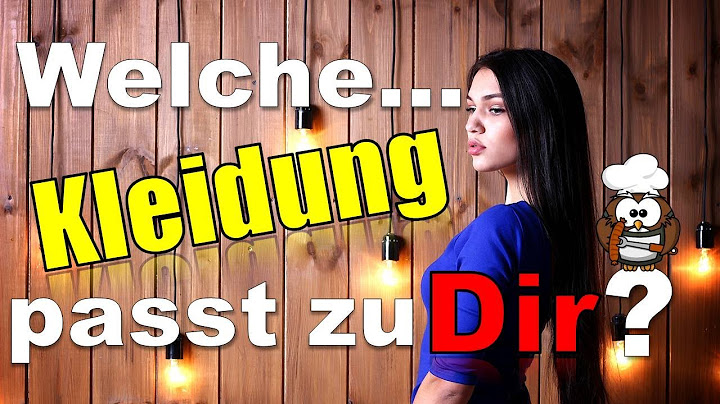 Page 2The given digits are 1, 2, 3, 4, 5 A two digit number has unit place and 10’s place. We are given 5 digits (1, 2, 3, 4, 5). The unit place can be filled (using the 5 digits) in 5 ways. After filling the unit place since repetition is not allowed one number (filled in the unit place) should be excluded. So the 10’s place can be filled (using the remaining 4 digits) in 4 ways ∴ Unit place and 10’s place together can be filled in 5 × 4 = 20 ways. So the number of two-digit numbers = 20
Answer: Option B Explanation: We have four digits 1,2,3,4. The first digit can be any of these four digits. Now we have already chosen the first digit. Since we cannot repeat the digits, we are left with 3 digits now. The second digit can be any of these three digits. Since the first digit can be chosen in 4 ways and second digit can be chosen in 3 ways, both the digits can be chosen in $4×3=12$ ways. [Reference: Multiplication Theorem] i.e., 12 two digit numbers can be formed.
but it is specified that, without repeating digits! will it not change the ans? but it is specified that, without repeating digits! will it not change the ans?The digits cannot be repeated. That is why first digit has 4 options and second digit has only 3 options. Therefore 4*3=12 is the answer. Suppose digits can be repeated. Then first digit will have 4 options. Similarly second digit also will have 4 options. In that case, answer will be 4*4=16 The digits cannot be repeated. That is why first digit has 4 options and second digit has only 3 options. Therefore 4*3=12 is the answer.<p>Suppose digits can be repeated. Then first digit will have 4 options. Similarly second digit also will have 4 options. In that case, answer will be 4*4=16</p>This is 4p2, right? This is 4p2, right?yes. yes.
(use Q&A for new questions)
?    Please sign in to post comments
For a number to be divisible by $6$, it must be divisible by both $2$ and $3$. If it is divisible by $2$, it must be even, so the units digit must be $2$ or $4$. If it is divisible by $3$, the sum of its digits must be divisible by $3$. The only one-digit positive integer that is divisible by $6$ is $6$ itself, so the number must have at least two digits. Two-digit numbers: If the units digit is $2$, the tens digit must have remainder $1$ when divided by $3$. Hence, the tens digit must be $1$ or $4$. If the units digit is $4$, the tens digit have remainder $2$ when divided by $3$. Hence, the tens digit must be $2$ or $5$. Therefore, there are four two-digit numbers divisible by $6$ that can be formed using the digits $1, 2, 3, 4, 5$ without repetition. They are $12$, $24$, $42$, $54$. Three-digit numbers: If the units digit is $2$, the sum of the hundreds digit and tens digit must have remainder $1$ when divided by $3$. Since the sum of the hundreds digit and tens digit must be at least $1 + 3 = 4$ and at most $5 + 4 = 9$, the only possibilities are that the sum of the hundreds digit and tens digit is $4$ or $7$. Since digits cannot be repeated, the only way to obtain $4$ is to use the digits $1$ and $3$ in either order, and the only way to obtain $7$ is to use the digits $3$ and $4$ in either order. Hence, there are four three-digit numbers divisible by $6$ that can be formed with the digits $1, 2, 3, 4, 5$ that have units digit $2$. They are $132$, $312$, $342$, and $432$. If the units digit is $4$, then the sum of the hundreds digit and tens digit must have remainder $2$ when divided by $3$. Since the sum of the hundreds digit and tens digit must be at least $1 + 2 = 3$ and at most $3 + 5 = 8$, the sum of the hundreds digit and tens digit must be $5$ or $8$. Since digits cannot be repeated, the only way to obtain $5$ is to use the digits $2$ and $3$ in either order, and the only way to obtain $8$ is to use the digits $3$ and $5$ in either order. Hence, there are also four three-digit numbers divisible by $6$ that can be formed with the digits $1, 2, 3, 4, 5$ that have units digit $4$. They are $234$, $324$, $354$, $534$. Therefore, there are a total of eight three-digit numbers divisible by $6$ that can be formed from the digits $1, 2, 3, 4, 5$ without repetition. Four-digit numbers: If the units digit is $2$, then the sum of the thousands digit, hundreds digit, and tens digit must have remainder $1$ when divided by $3$. Since the sum of the thousands digit, hundreds digit, and tens digit must be at least $1 + 3 + 4 = 8$ and at most $3 + 4 + 5 = 12$, the sum of the thousands digit, hundreds digit, and tens digit must be $10$. Since digits cannot be repeated, the only way to obtain a sum of $10$ is to use the digits $1$, $4$, and $5$ in some order. There are $3! = 6$ such orders. Hence, there are six four-digit numbers divisible by $6$ with units digit $2$ that can be formed from the digits $1, 2, 3, 4, 5$ without repetition. They are $1452$, $1542$, $4152$, $4512$, $5142$, and $5412$. If the units digit is $4$, the remainder of the sum of the thousands digit, hundreds digit, and tens digit must be $2$ when divided by $3$. Since the sum of the thousands digit, hundreds digit, and tens digit must be at least $1 + 2 + 3 = 6$ and at most $2 + 3 + 5 = 10$, the sum of the thousands digit, hundreds digit, and tens digit must be $8$. Since digits cannot be repeated, the only way to obtain a sum of $8$ is to use the digits $1$, $2$, and $5$ in some order. Since there are $3! = 6$ such orders, there are also six four-digit numbers that can be formed from the digits $1, 2, 3, 4, 5$ without repetition. They are $1254$, $1524$, $2154$, $2514$, $5124$, and $5214$. Hence, there are a total of $12$ four-digit numbers divisible by $6$ that can be formed from the digits $1, 2, 3, 4, 5$ without repetition. Five-digit numbers: The sum of the five digits $1, 2, 3, 4, 5$ is $15$, which is divisible by $3$. Hence, any five digit number formed from these digits without repetition that has units digit $2$ or $4$ is divisible by $6$. There are two ways of filling the units digit and $4!$ ways of filling the remaining digits. Hence, there are $2 \cdot 4! = 48$ five-digit numbers that can be formed with the digits $1, 2, 3, 4, 5$ without repetition. In total, there are $4 + 8 + 12 + 48 = 72$ numbers divisible by $6$ that can be formed from the digits $1, 2, 3, 4, 5$ without repetition. |

zusammenhängende Posts
Werbung
NEUESTEN NACHRICHTEN
Toplisten
#1
#3
#4
Top 6 tlc mein leben mit 300 kg cillas 2022
1 Jahrs vor#5
Top 8 ich liebe dich unendlich italienisch 2022
2 Jahrs vor#6
#7
Top 9 windows 8.1 update-suche dauert ewig 2022
1 Jahrs vor#8
Top 9 co2 flasche füllen in meiner nähe 2022
2 Jahrs vor#9
Top 5 britax römer king 2 gurte einbauen 2022
1 Jahrs vor#10
Werbung
Populer
Werbung

Urheberrechte © © 2024 frojeostern Inc.


















